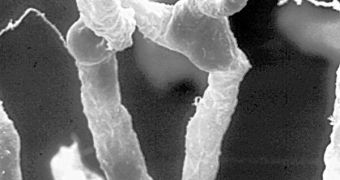Treating conditions such as stroke and Alzheimer's requires drugs that need to reach the brain, but the blood-brain barrier is there to prevent this from happening. Now, experts propose a new way to bypass this obstacle.
Under normal circumstances, having the BBB up and operational is the best thing anyone could hope for. It is specifically designed to keep pathogens such as virus and bacteria out of the brain.
But this quickly becomes a problem when healthcare experts try to treat disorders that have already set in. Moving drugs past the BBB is a very tricky business indeed, and not many substances can penetrate it.
A team of experts at the Swedish medical university Karolinska Institutet have recently published a new research paper in the top journal Nature, detailing a new way to achieve this goal.
“Our new results show that the blood-brain barrier is regulated by pericytes, and can be opened in a way that allows the passage of molecules of different sizes while keeping the brain’s basic functions operating properly,” explains Christer Betsholtz.
He adds that pericytes are a type of cell in blood vessel walls that play an important role in underlying the functions of the blood-brain barrier.
The expert holds an appointment as a professor of vascular biology at the KI Department of Medical Biochemistry, and was also the leader of the new investigation.
“Our new knowledge of how the BBB is regulated could be used in two ways,” Betsholtz explains further, quoted by AlphaGalileo.
“To protect the brain under conditions such as stroke and inflammation that lead to the opening of the BBB and the release of neurodamaging substances; and to open the barrier temporarily to allow the transport of drugs against neurodegenerative and other diseases of the brain,” he adds.
Analysts believe that this new research could be used to develop more efficient therapies for various forms of dementia, including Alzheimer's and Parkinson’s diseases.
“Another interesting find is that the cancer drug Imatinib, which inhibits certain signal proteins for cell growth, has a similar effect in the presence of pericytes in that they also close the capillary wall transport paths,” Betsholtz reveals.
The new investigation was conducted with support from the Swedish Agency for Innovation Systems, the EU Sixth Framework Program, and the Swedish Cancer Society.
Additional support was provided by the Knut and Alice Wallenberg Foundation, the Inga-Britt and Arne Lundberg Research Foundation and the Söderberg foundations.

 14 DAY TRIAL //
14 DAY TRIAL //